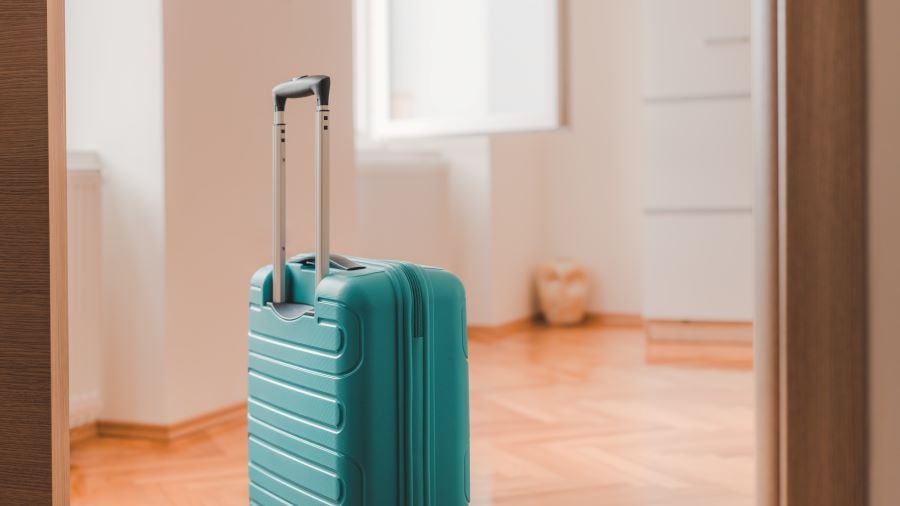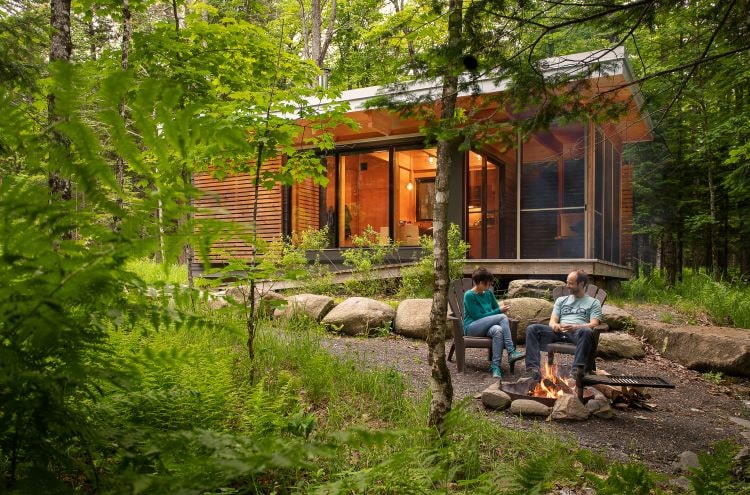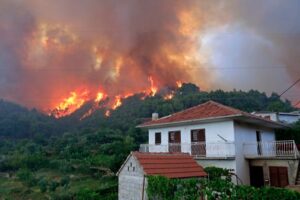What kind of insurance do you need for an AirBNB or VRBO rental?
- Your Good Insurance Agency
- September 28, 2022
- 2:59 pm
Renting out your home or apartment on a short-term basis — whether through a service such as Airbnb, Vrbo, or a more traditional property manager — can benefit you and your tenant. However, it also poses potential risks. As a landlord, you might not realize that standard homeowners insurance policies don’t cover homes used for profit.
Imagine if a disaster strikes and your tenant’s belongings or the interior of your home is damaged by fire, water damage, or another event that isn’t covered under typical homeowners insurance policies. In that case, there may be no coverage available to pay for repairs. Fortunately, you can take steps to protect yourself from financial losses when renting out your home—and these options don’t have to break the bank!
What Type of Homeowners Insurance Do You Need for an Airbnb Rental?
While renting out your home has perks, it also poses potential risks. If you’re planning on listing your property on sites like Airbnb or VRBO, there are a few different ways to go about ensuring proper coverage. The right option will depend on your particular situation. We’ll go into detail about each of the various situations below.

Here is an overview of some insurance situations that we’ll discuss in detail throughout this article:
If you rent out your own home or rooms of your home:
- Add a short-term rental insurance endorsement to your homeowners insurance policy (see more below)
- Get a short-term rental insurance policy in addition to your homeowners insurance policy
If you have a rental property that you never live in:
- Add a short-term rental insurance endorsement to your landlord insurance policy
- Get a short-term rental insurance policy
If you’re a tenant renting someone else’s house or apartment:
- Your landlord will carry insurance, but you will need additional coverage while offering your home on a vacation rental site.
- Get a renters insurance policy to protect your own personal belongings
Most landlords and homeowners insurance policies cover damage to the property of others caused by an insured event such as a fire or windstorm. However, most policies do not provide any liability coverage for bodily injury or property damage that may occur while the property is being used as rental accommodation. The exceptions are those policies that include “personal articles floater” endorsements (PAPFs), which extend coverage to protect personal property belonging to tenants from theft or damage during the period they rent out their homes.
What is Short-term Rental Insurance?
Many insurance companies offer short-term rental insurance as an endorsement or rider, meaning the coverage is added to your current homeowner’s insurance policy. Whether renting a room in your house or another house on your own, this coverage can protect your assets in the event of an accident. However, some companies may require that you obtain a separate
policy to cover your short-term rental. Discussing your options with an independent agent with access to multiple carriers is best. An agent can also ensure you understand what these types of policies are covered and not covered.
Short-term rental insurance doesn’t cover everything that can go wrong. The most common misconception among potential landlords is that they don’t need any additional coverage beyond what they already have because their landlord’s policy covers them.
What Insurance Do I Need for My VRBO Rental?
Fortunately, you can take steps to protect yourself from financial losses when renting out your home. One option is to add a “peril of direct physical loss” insurance rider (also known as vacation rental coverage) to your homeowner’s policy. These riders provide additional homeowners insurance coverage for situations such as damage caused by guests. Suppose a guest causes property damage or personal injury while staying at your vacation rental. In that case, the rider will help cover accident repairs and/or medical expenses.
If you don’t own your home but rent, consider renters insurance. It’s a good idea for anyone who is renting where they live on a short-term (or long-term) basis. It can help protect you from liability if someone is injured while staying in your vacation rental and cover damage caused by guests. If you have renters insurance, ensure it protects the property in case of theft or damage from vandalism. If not, consider adding this type of coverage to your policy. If you don’t have renter’s insurance, it’s typically pretty affordable. Always check with your landlord that renting the home is acceptable per your lease.
What Kind Of Personal Property Does Vacation Rental Insurance Cover?
Because short-term rentals require frequent checking-in and check-outs by guests, some insurers might consider this type of usage under specific endorsements since it does not meet their definition of “vacation.” But what about covering belongings left behind in this scenario? This can be tricky because even though many homeowners policies do offer some limited protection against losses during periods when the home is unoccupied, they generally exclude coverage for items placed inside guest rooms like televisions and computers—usually due to concerns over whether these items were adequately secured in locked dressers drawers when not in use.

There are a few exceptions, however. For example, some policies cover personal property left behind in a rental apartment or vacation home occupied by temporary guests (like the owners themselves). In addition, some types of homeowners insurance will automatically include coverage for theft of valuable items such as jewelry and cash if they are locked away in drawers or cabinets while the home is unoccupied.
Cost Of Short-Term Rental Insurance
So how much is short-term rental insurance when purchasing a new property? Keep in mind that numerous factors go into determining short-term rental premiums. The property’s location will play a significant role, as will the condition of your home. But the cost of the policy is well worth it in the event of a catastrophe. But on average, a vacation rental insurance policy ranges between $2,000 and $3,000 per year.
Vacation Rental: How Much Liability Insurance Do You Need?
Liability insurance covers your legal responsibility to those injured on your property or at host events. It also covers any damage done to the property by someone else while there. The liability insurance required in most contracts is usually $1 million, but it could be more depending on the situation.
Homeowner’s insurance provides coverage for damage to your home caused by fire and other perils that may occur while you live there, as well as theft or vandalism to possessions inside the house. However, you are running a business when renting your home for profit. And businesses have risks that are vastly different than those of a single-family living in their own home. Imagine how expensive homeowner’s insurance would be if it covered everyone’s business activities.
An umbrella policy is an additional layer of liability coverage that provides protection above and beyond your standard homeowner’s insurance. It covers claims that exceed the limits on your other policies—for example if someone sues you for $1 million in damages related to a dog bite. Still, only $300,000 of that falls under your homeowners‘ policy. You can use your umbrella policy to cover the remaining costs.
Another option is to purchase a landlord policy, which provides liability coverage for situations where tenants may cause damage while staying at your property.
Landlord policies are more expensive than vacation rental insurance, but they often offer broader coverage for landlords. For example, a landlord policy could include additional protection against things like theft or vandalism that might not be covered by other types of insurance plans. While these protections aren’t cheap—they can cost hundreds of dollars per year—it’s worth considering if you want to ensure that you’re covered in all possible situations.
Homeowners Insurance vs Rental Home Insurance
Here’s another tip: If you’re thinking about renting out part of your home as well as living there full time (like an Airbnb host), it makes sense for you to buy both kinds of insurance so that your guests and tenants have some security in case anything goes wrong during their stay with you!
Coverage for tenant-caused damage to the property: This is the most common type of landlord insurance. It covers broken windows, lost keys, and stolen items—but only when caused by your tenants or guests. And if you’re renting out your place for a long-term tenant, it’s worth checking with your landlord to see if they require renters’ insurance. If not, consider purchasing some anyway—it’ll help protect you from liability in case of an accident or theft.
Liability coverage: If someone is injured on your property or sues you because of something that happened there, liability coverage will help protect against any legal costs associated with it—like paying out-of-pocket expenses related to the lawsuit or medical bills for an injured individual who sued you for damages.
Rent loss coverage: If a tenant is forced out of the property due to a fire or another natural disaster, this type of landlord insurance will help cover any lost rent payments.
Replacement cost coverage: This part of your policy will help cover costs associated with replacing items stolen from your home or damaged by tenants. For example, if a burglar breaks into your rental property and steals expensive electronics that belong to you, this coverage would kick in and pay for those items.
Liability protection: Landlords can purchase a policy that covers any legal costs, like paying out-of-pocket expenses related to the lawsuit or medical bills for an injured individual who sued you for damages.
Loss of use: If a renter causes damage that renders your property uninhabitable, this coverage will help cover the cost of renting another place. At the same time, repairs are made at their expense.
Additional living expenses: This type of landlord insurance helps cover costs associated with additional living expenses if a tenant is forced to move out due to a fire or other natural disaster. This type of landlord insurance will help cover any lost rent payments
and other expenses related to the temporary living arrangement.
Flood insurance: Landlords should consider purchasing this type of insurance to help replace items stolen from their homes or damaged by tenants. For example, if a burglar breaks into your rental property and steals expensive electronics that belong to you, this coverage would kick in and pay for those items.
Landlord Policy vs. Short-term Rental Insurance
So, what is the difference between a landlord’s and short-term rental insurance policy? If you rent out your home or apartment on a short-term basis — you probably already know how lucrative owning a vacation rental can be. However, don’t overlook one key component to protecting your investment, insurance.
The first step to a comprehensive insurance program is understanding the difference between leveraging your property as a long-term rental or a short-term vacation home. Will your lease be 12 months or more? Or will your home be for vacation rentals? Knowing this helps with identifying the type of coverage you should carry.

You’ll also need to learn the key difference in insurance coverage: a Landlord policy will provide coverage for renting your property long term. Whereas a vacation rental policy will provide coverage for renting your property to multiple renters for a short period of time. This is important because if you don’t have the right insurance protection package for your property, your lucrative investment could become a significant loss.
While your existing coverage will kick in if there’s damage to your own personal property during the rental period through no fault of your own, it won’t cover losses caused by guests’ actions or negligence — like when they break something because they were reckless with their belongings—and it won’t pay for any lost income resulting from those actions either.
Ensure You’re Covered
There are many options for vacation rental insurance, but the most important thing is that you’re covered. If you’re worried about finding a policy that meets your needs and budget, we can help. Curious as to what companies offer short-term rental insurance riders as part of a homeowners policy? Here at Your Good Insurance Agency our team of experts will help you find coverage that best suits your situation and works within your budget to focus on making more money as an Airbnb host or owner!
Insurance Made Easy
Get A Quote Now
As a broker we will price this with up to 30 carriers to get you the absolute best price.
About Your Good Insurance Agency

Based in San Diego, California, Your Good Insurance Agency was started in 2008 with the goal of helping people find high quality insurance at a reasonable price.
We work with over 30 carriers to help you get the best rate with good coverage options. We specializes in personal lines insurance with an emphasis on homes, dwellings (rental properties), and autos. We also help investors with property flip Insurance.
Most of our clientele resides in California however we are also licensed in Utah, Nevada, & Arizona.



